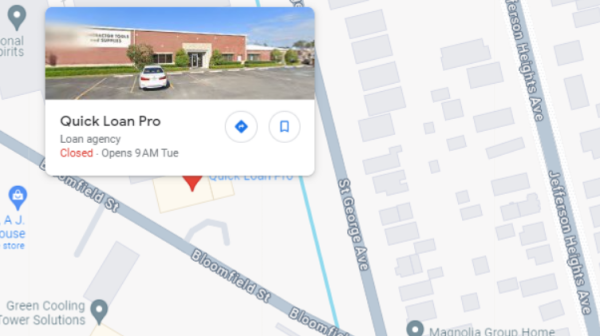In the complex world of personal finance, payday loans emerge as a double-edged sword. They offer immediate relief for short-term financial needs but come with high-interest rates and potential pitfalls. Louisiana, like many states, has its set of regulations governing payday loans, aiming to balance consumer protection with the availability of these quick financial solutions.
What Are Payday Loans?
Payday loans are short-term, high-interest loans intended to cover unexpected expenses or bridge a gap until the next paycheck. Typically, these loans are for small amounts, and borrowers must repay them within a few weeks. The appeal of payday loans lies in their accessibility; lenders usually don’t require a credit check, making them available to many who might not have access to other forms of credit.

The Pros and Cons of Payday Loans in Louisiana
Expanding on the pros and cons of payday loans in Louisiana provides a deeper insight into the implications for borrowers in the state. Let’s delve into each point for a more thorough understanding:
Pros
Accessibility
Payday loans stand out for their accessibility. In Louisiana, these loans are particularly beneficial for individuals with poor or no credit history who might not qualify for traditional loans from banks or credit unions. The minimal requirements for approval mean that many people can access funds in times of need, without the lengthy application processes or waiting periods associated with other types of loans.
Quick Funding
One of the key advantages of payday loans is their ability to provide rapid financial relief. When facing unexpected expenses, such as medical bills or car repairs, Louisiana residents can often receive payday loan funds within a day. This quick turnaround can be critical in emergency situations, helping to resolve immediate financial pressures without the added stress of long wait times.
Regulated Industry
Louisiana’s payday loan industry is regulated by state laws designed to protect consumers from unfair lending practices. Regulations such as caps on loan amounts, fees, and the prohibition of rollovers are intended to prevent borrowers from falling into a debt spiral. These protective measures ensure a safer borrowing environment, giving individuals a more secure way to manage their short-term financial needs.
Cons
High-Interest Rates
Despite regulatory efforts, the costs associated with payday loans can still be exorbitantly high. In Louisiana, the interest rates and fees on these loans can quickly accumulate, often surpassing the principal amount borrowed. This can make repayment difficult, especially for those already in precarious financial situations, and can lead to a cycle of borrowing that exacerbates the borrower’s financial strain.
Short Repayment Terms
The typical repayment period for a payday loan in Louisiana is two to four weeks. Such short terms can pose significant challenges for borrowers, particularly those who are unable to secure the necessary funds in time. The pressure to repay quickly can lead to the need for additional loans, creating a dependency cycle that can be hard to break. This cycle is exacerbated by the state’s prohibition of rollovers, pushing borrowers towards taking out new loans to cover previous ones.
Potential for Debt Trap
Perhaps the most critical downside of payday loans is the potential for falling into a debt trap. Without careful financial planning, individuals may find themselves in a worse financial condition than before they took out the loan. The combination of high-interest rates, short repayment terms, and the immediate need for funds can lead to a continuous cycle of borrowing and repaying. For some Louisiana residents, this cycle becomes difficult to escape, leading to long-term financial difficulties that can have lasting impacts on their financial well-being and creditworthiness.

Alternatives to Payday Loans
Before considering a payday loan, it’s worth exploring other options:
Personal Loans
Personal loans are a viable alternative to payday loans, offering several advantages that cater to those in need of financial assistance. Unlike payday loans, personal loans usually come with lower interest rates and longer repayment periods. This means borrowers can spread out their payments over months or even years, significantly reducing the monthly financial burden. Moreover, personal loans are typically unsecured, meaning you don’t have to put up collateral like your home or car. Many lenders also offer personal loans with fixed interest rates, ensuring that your monthly payments remain consistent throughout the loan term. While personal loans generally require a credit check, there are lenders who specialize in loans for individuals with lower credit scores, offering a pathway to both funding and credit improvement.
Credit Unions
Credit unions offer a community-focused alternative to traditional banks and payday lenders. One of the standout offerings from some credit unions is the Payday Alternative Loan (PAL). PALs are designed to offer members access to small amounts of cash with much lower fees and interest rates than typical payday loans. To qualify for a PAL, you usually need to be a member of the credit union for a certain period of time. The repayment terms for PALs are also more favorable, ranging from one to six months, which can help borrowers avoid the debt cycle associated with payday loans. Credit unions may also offer financial education and budgeting assistance to help members manage their finances and avoid future cash shortfalls.
Payment Plans
Negotiating payment plans with creditors can be a proactive step towards managing financial strains without resorting to payday loans. Many creditors are willing to work with consumers to adjust payment schedules, reduce interest rates, or even defer payments during times of hardship. This approach requires communication and negotiation but can result in more manageable monthly payments and reduced financial stress. It’s essential to approach creditors before your account becomes delinquent, as they may be more inclined to offer assistance to consumers who are proactive about managing their debts.
Emergency Funds
Building an emergency fund is perhaps the most effective strategy for avoiding the need for payday loans. An emergency fund is a savings account that’s specifically set aside to cover unexpected expenses, such as medical bills, car repairs, or sudden unemployment. Even a small emergency fund can provide a significant buffer against financial surprises, reducing the need to borrow in case of emergencies. Starting with small, manageable contributions to your emergency fund can lead to significant savings over time, offering peace of mind and financial security. Financial experts often recommend saving enough to cover three to six months of living expenses, but even a smaller amount can be a valuable resource in times of need.
Conclusion
Payday loans in Louisiana offer a quick fix for financial emergencies but come with notable downsides. The state’s regulations aim to protect consumers, but individuals must exercise caution and consider alternatives before diving into the world of payday lending. Responsible financial planning and awareness of other resources can prevent the cycle of debt often associated with these high-risk loans.

Media Contact
Company Name: Quick Loan Pro
Contact Person: Media Relations
Email: Send Email
Phone: +15044381753
Address:4901 Bloomfield St
City: New Orleans
State: Louisiana
Country: United States
Website: https://quickloanpro.com/new-orleans-la/
